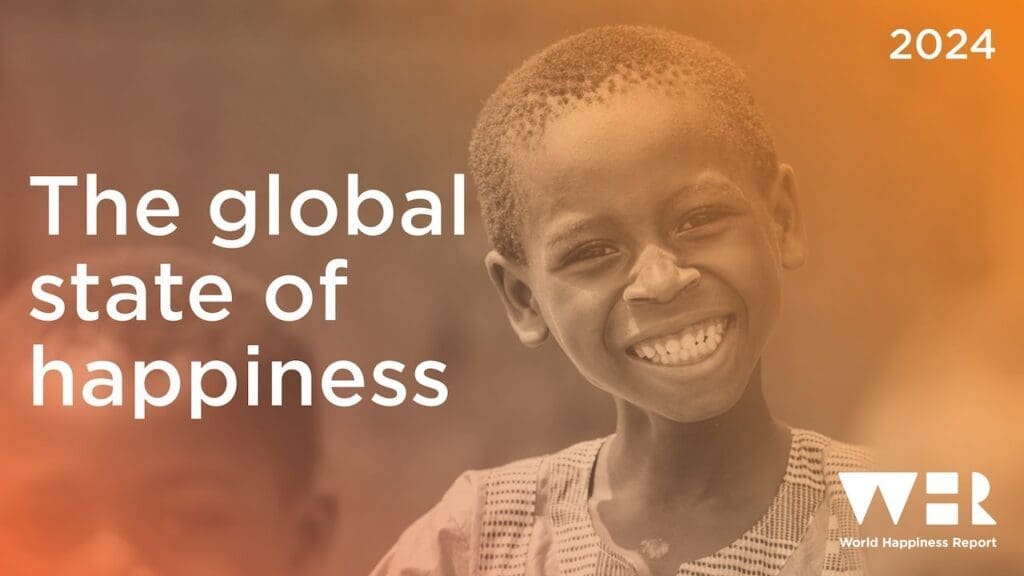The annual World Happiness Report is out: Vincentian ideas and reflections on the world situation!

But a lot of people won’t be happy. The US, for example, and Australia, the UK and other parts of Western Europe. The US came in at #23, its first time outside the top twenty. Other regions of the world stayed consistent with previous rankings, especially the Nordic countries once again at the top of the list, led by #1 Finland (for the 7th straight time).
The Nordic countries? With those dark and freezing winters? What are they measuring to come up with that result?
The World Happiness Report, produced by the University of Oxford with Gallup and the UN Sustainable Development Solutions Network, this year focuses on Happiness at different stages of life. Data is gathered from a broad selection of people self-reporting on the issue based on three main indicators: life expectancy, positive affect (laughter, enjoyment and interest) and negative affect (worry, sadness and anger). You can read the full 158 pages of text, charts and tables HERE.
Happiness trends continued roughly the same in Asia, Africa and Latin America, and actually rose slightly in Central and Eastern Europe, indicating that the young are happier than the elderly, as would be expected since old age brings more health issues, loss of family and friends to death, and a fear of dementia or the inability to care for oneself.
But in 2017 that trend began to flip in the US, Australia and some of Europe. Happiness among the young (ages 15-24) there has fallen sharply—the young are less happy than the old!
But why? Happiness, that “cherished state of being,” is influenced by many factors. The downward turn seems linked to social media obsession, the rising threat of climate emergency, unaffordable housing, high cost of living, stagnant wages and a reduced level of trust citizens have in their institutions.
On those indicators, it turns out that Social Democracies deliver best for their people, nations with slightly higher taxes but much greater public support systems such as universal public healthcare, relative economic equality and affordable opportunities in education and housing. Although countries are often ranked by their Gross National Product, GDP fails to measure the real effect of economic activity on the daily lives of people. The Happiness Report fills in the blanks quite well.
Should this concern us?
First, the report is a stark reminder that the priorities of many nations do not adequately address the real needs and aspirations of their citizens.
Then too, given the narrowest of windows available to curb disastrous climate change, and given that previous generations have failed the challenge of caring for our Common Home, hope now resides in the young. They have largely taken up the challenge with conviction and creativity, and all young people need to stay positive and confident in the effort, in short, with the optimism and healthy outlook that some measure of happiness provides.
Is this a Vincentian concern?
If alive today, St. Vincent de Paul, himself a great networker and organizer, would surely appreciate the social tools available now, and the young people who use them so easily, as powerful instruments that could help bring lasting change in the life of people trapped in poverty. He would attract young people to the cause of ending poverty and homelessness just as he attracted men and women of different classes, backgrounds and education to his charism of evangelizing and serving the poor.
St. Vincent speaks to the long term when he tells us “We cannot better secure our eternal happiness than by living and dying in the service of the poor.” Most readers of this platform would probably agree that the purpose of life is not so much to seek happiness on its own but to live a life that matters and find happiness through a meaningful life.
Jim Claffey
NGO Representative of the CM to the UN

